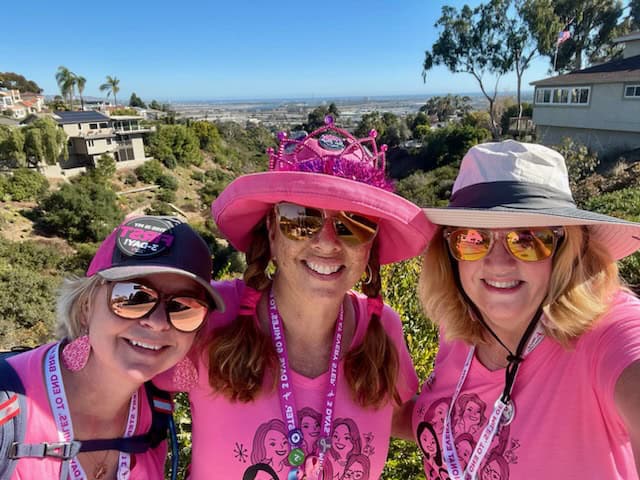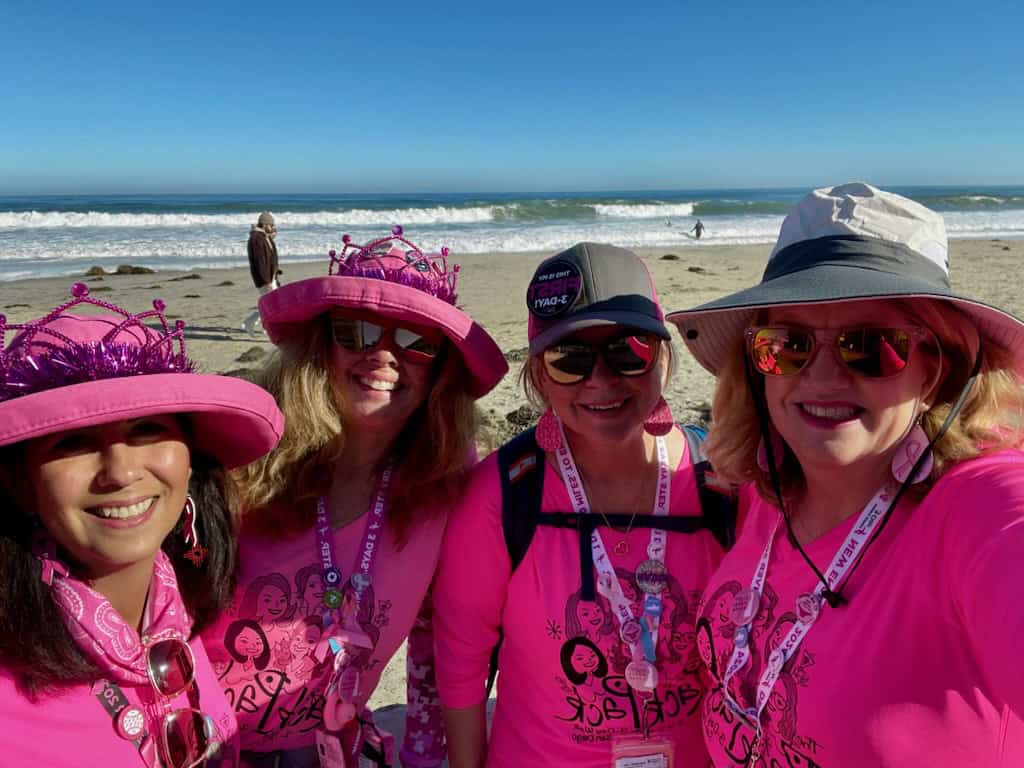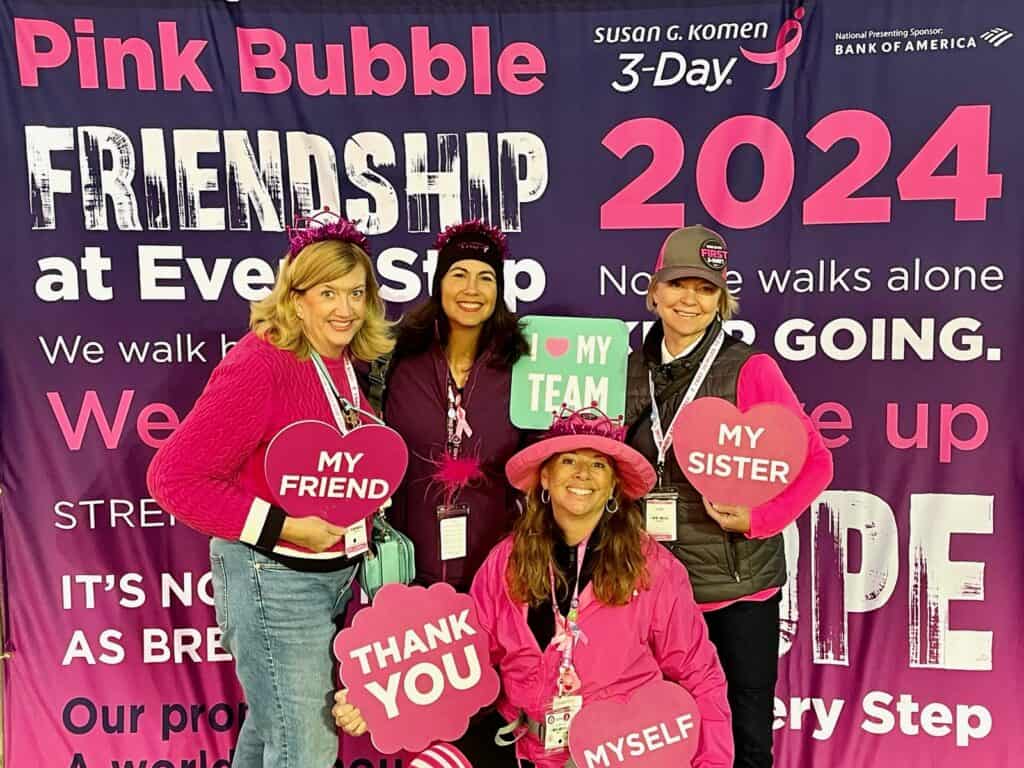
Julie Staggs has always approached her health with vigilance, knowing that routine mammograms were not just a precaution, but a necessity because of her family’s history with breast cancer. Along with her mother, Julie’s grandmother and aunts have all had the disease. “For me it wasn’t a matter of if, but when,” she said.
Unusual Diagnosis
Julie’s breast cancer diagnosis came in July 2023 after a routine mammogram. She was told she had stage 1 invasive ductal carcinoma. However, a second diagnosis was coming. One tumor was found on the mammogram, while a second tumor was discovered when Julie was in surgery.
“It was shocking when they found it,” Julie said referring to the additional tumor. “It was invasive lobular cancer which is known for not showing up on mammograms.”
Jullie received more unusual news when she did genetic testing and learned she was negative for BRCA inherited gene mutations.
“My oncologist was blown away by my genetic testing results. She ordered a comprehensive genetic panel to pinpoint the genetic marker that could indicate the cancer, but there was nothing found,” Julie recalled. “So, it’s not that it’s not a genetic factor, it could be that researchers haven’t found it yet.”
Treatment Plan
When Julie, a 55-year-old registered nurse, received her breast cancer diagnoses she didn’t panic. Instead, she switched on her nurse brain. “I thought to myself, ‘Okay, let’s do this and I started going through and sorting out all the things I had to do.’”
Julie decided to have a double mastectomy in September 2023 and later had additional surgeries for breast reconstruction. In December 2023 she had a hysterectomy and oophorectomy because her breast cancer was estrogen and progesterone receptor-positive, HER2-negative. “My interest was in removing any kind of estrogen that the cancer could feed off,” Julie said. She is also taking tamoxifen for the next five years to help reduce her chances of a cancer recurrence and deals with the side effects of the medication which include joint and bone pain.
Supporting the Community


Even as Julie was navigating her treatment plan, she knew she had to take action. So, she signed up and started training for her second time walking 60 miles in the Susan G. Komen® 3-Day in San Diego. She participated for the first time in 2007 in support of her mother who was diagnosed with breast cancer in her 30s, and in November 2024, she walked for herself and other loved ones.
Julie said despite what her body was going through, she still needed to walk in the 3-Day to lend her support to others.
“My mother is now 84 and is a breast cancer survivor. But recently a few of my sorority sisters found out they had breast cancer,” Julie said, fighting back tears. “And so really it’s the realization that this is very close to home, and I just need to do something.”
Julie’s 3-Day team, “The Rack Pack,” consisted of six teammates made up of her lifelong friends and sorority sisters some from San Diego, and others who traveled to the event from Alaska and New Mexico. They raised more than $9,000.
Julie credits a good recovery plan from her surgeries for being able to prepare for the 60-mile walk. She urged others to take part in a 3-Day event and said while it may seem daunting, it goes by pretty fast.
“You just take one mile at a time and you’re talking and chatting and looking at the great scenery and before you know it, you’re at mile 20,” she said.
The Komen 3-Day is an annual three-day up to 60-mile fundraising walk to end breast cancer held in Boston, Denver, Dallas and San Diego. Since 2003, participants have raised more than $902 million to support Komen’s work to end breast cancer. Visit www.the3day.org to register or make a donation.
Statements and opinions expressed are that of the individual and do not express the views or opinions of Susan G. Komen. This information is being provided for educational purposes only and is not to be construed as medical advice. Persons with breast cancer should consult their health care provider with specific questions or concerns about their treatment.



